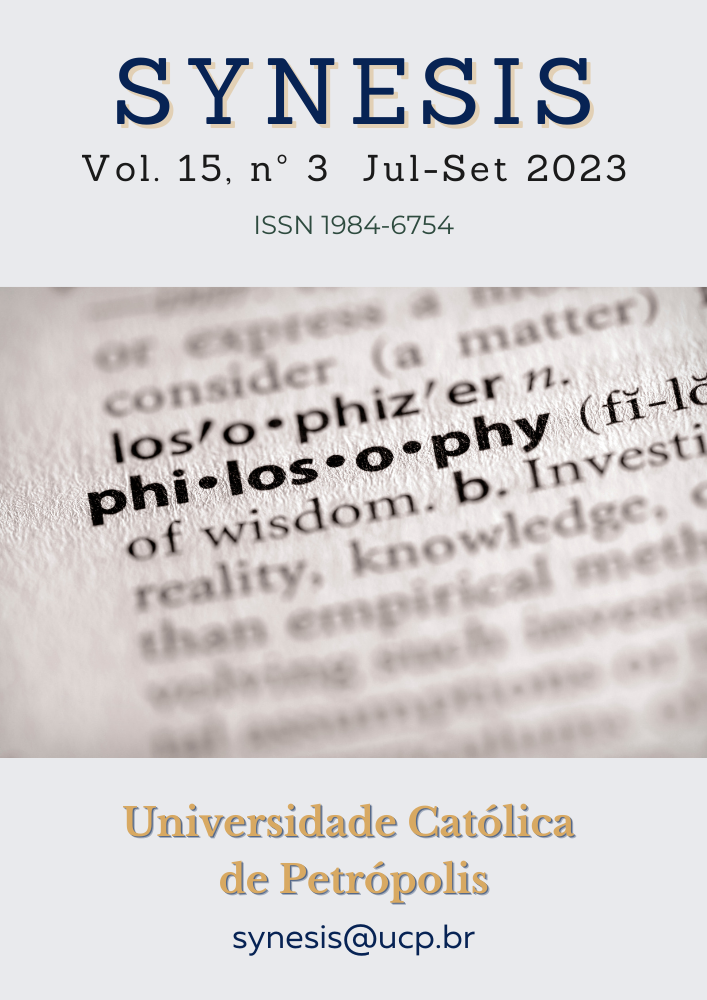Resumo
Este artigo analisa o fenómeno da gestão do conhecimento na sociedade do conhecimento, examina a sua importância no sistema de gestão universitária e avalia o seu impacto na qualidade do ensino. Foi efectuada uma análise teórica da essência da gestão do conhecimento, foram determinadas as características dos processos de transferência e difusão do conhecimento na actualidade, foram consideradas as tendências de desenvolvimento do ensino e a sua relação com a gestão do conhecimento. As bases conceptuais da gestão do conhecimento no ensino superior são fundamentadas e as condições para a sua implementação na universidade são determinadas. A metodologia proposta, que inclui um estudo experimental para testar a hipótese e implementar o conceito de gestão do conhecimento no processo educativo do ensino superior.
Referências
Andrushchenko, V. P. (1996). Modern social philosophy: a course of lectures. Genesis, 368.
Asarta, C.J., & Schmidt, J.R. (2020). The effects of online and blended experience on outcomes in a blended learning environment. The Internet and Higher Education, 44, 100708.
Bao, W. (2020). COVID‐19 and online teaching in higher education: A case study of Peking Higher education institution. Human Behavior and Emerging Technologies, 2(2), 113‒115.
Barabanshchikov, A.V. (1981). Problems of pedagogical culture of university teachers. To the question of the essence of pedagogical culture. Soviet pedagogy. No. 1, 71–77.
Bondar, V. I. (2000). Theory and technology of managing the learning process at school. Schoolboy, 191.
Bodalоv, A.A. (1995). Personality and society: selection. psychol. work. Рed. academy, 328 .
Dang, Y. M., Zhang, Y. G., Ravindran, S., & Osmonbekov, T. (2016). Examining student satisfaction and gender differences in technology-supported, blended learning. Journal of Information Systems Education,27(2), 119.
Goudeau, S., Sanrey, C., Stanczak, A., Manstead, A., & Darnon, C. (2021). Why lockdown and distance learning during the COVID-19 pandemic are likely to increase the social class achievement gap. Nature Human Behaviour,5(10), 1273-1281.
Graham, C.R. (2009). Blended learning models. In Encyclopedia of Information Science and Technology. Second Edition (pp.375‒382).
Graham, C.R. (2013). Emerging practice and research in blended learning. In Handbook of distance education (pp.351‒368).
Graham, C.R. (2018). Current research in blended learning. Handbook of distance education, 173‒188. https://www.taylorfrancis.com/chapters/edit/10.4324/9781315296135-15/current-research-blended-learning-charles-graham
Hrastinski, S. (2019). What do we mean by blended learning? TechTrends, 63(5), 564‒569.
Kim, C., Kim, M.K., Lee, C., Spector, J.M., & DeMeester, K. (2013). Teacher beliefs and technology integration. Teaching and teacher education, 29, 76‒85.
Kirkwood, A., & Price, L. (2013). Examining some assumptions and limitations of research on the effects of emerging technologies for teaching and learning in higher education. British Journal of Educational Technology, 44(4), 536‒543.
Kopcha, T.J., Ding, L., Neumann, K.L., & Choi, I. (2016). Teaching technology integration to k-12 educators: A ‘Gamified’approach. TechTrends, 60(1), 62‒69.
Vvedensky, V. N. (2006). The teaching profession as a social institution. Pedagogy, No. 2, 62–66.
Kuzmina, N. V. (1990). Professionalism of the personality of the teacher and master of industrial training. Higher school, 119.
Smith, K., & Hill, J. (2019). Defining the nature of blended learning through its depiction in current research. Higher Education Research & Development, 38(2), 383‒397.
Subhash, S., & Cudney, E.A. (2018). Gamified learning in higher education: A systematic review of the literature. Computers in human behavior, 87, 192‒206.
Thai, N.T.T., De Wever, B., & Valcke, M. (2017). The impact of a flipped classroom design on learning performance in higher education: Looking for the best “blend” of lectures and guiding questions with feedback. Computers & Education, 107, 113‒126.
Tirziu, A.M., & Vrabie, C. (2015). Education 2.0: E-learning methods. Procedia-Social and Behavioral Sciences, 186, 376‒380.
Raven, A., & Park, C. W. (2015). Information quality as a determinant of task-technology fit in using communication technology for simple task. Issues in Information Systems,16(1).
Zhang, Z., Li, Z., Han, M., Su, Z., Li, W., & Pan, Z. (2021). An augmented reality-based multimedia environment for experimental education. Multimedia Tools and Applications, 80(1), 575-590

Este trabalho está licenciado sob uma licença Creative Commons Attribution-NonCommercial-NoDerivatives 4.0 International License.
Copyright (c) 2023 Synesis (ISSN 1984-6754)
